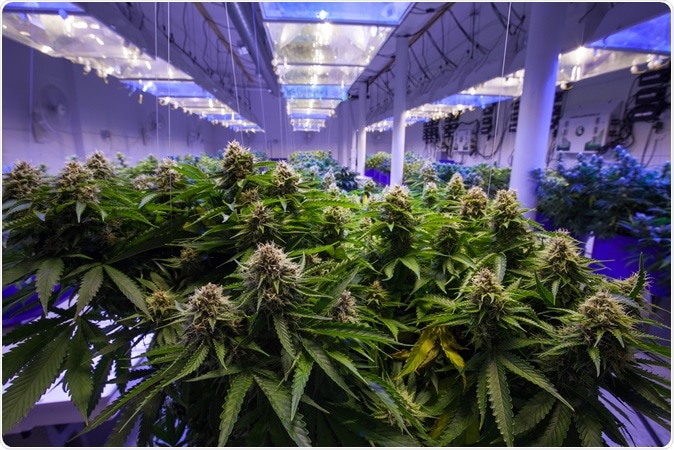Researchers from King’s College London have now found how the chemical cannabidiol or CBD from cannabis can reduce the abnormal brain activity in patients who are at risk of psychosis. The study was published in the latest issue of the journal JAMA Psychiatry.

Image Credit: Canna Obscura / Shutterstock
CBD is one of the compounds found in cannabis that is non-intoxicating. Cannabis, when used on a regular basis, can increase the chances of a person getting psychosis as has been seen in several studies previously. This new study proves that this one component in cannabis can actually help protect against psychosis and could for the basis of a novel anti-psychotic drug of the future. Cannabis contains a chemical called of tetrahydrocannabinol or THC. It is THC that provides the high associated with cannabis. The actual mechanism for this was unknown up until now.
CBD has also shown beneficial effects on persons with treatment-resistant epilepsy. This year in June, this compound received US Food and Drug Administration (FDA) approval for use in intractable epilepsies. The purified form of CBD manufactured by GW Pharmaceuticals has been approved for use in special circumstances.
Dr. Sagnik Bhattacharyya and colleagues from the Institute of Psychiatry, Psychology & Neuroscience (IoPPN), in this new study included 33 participants. They looked at the brain scans of these participants who were suffering from psychotic symptoms but had not yet been diagnosed with full blown psychosis. In addition 19 healthy volunteers were recruited as controls. Sixteen of the 33 participants received capsules containing CBD while 17 received placebo capsules.
On scanning their brains, the team found that the abnormal activities in certain regions of their brains including medial temporal cortex, striatum and the midbrain showed reduced abnormal activity. The abnormal activity in these regions is typically is associated with psychotic illnesses such as schizophrenia.
The researchers explain that unlike standard antipsychotic drugs, CBD acts via a mechanism that is different from modulating dopamine signalling. There are no additional side effects with CBD such as weight gain, metabolic diseases, tremors etc. that are commonly seen with standard antipsychotic drugs. Bhattacharyya explained that CBD is better tolerated than the other available antipsychotics. “There is an urgent need for a safe treatment for young people at risk of psychosis,” he said. Around 15,000 people in Britain present with early symptoms of psychosis and could benefit from this novel treatment.
As a next step the Institute of Psychiatry, Psychology and Neuroscience at King’s College is now designing a large clinical trial with CBD including around 300 participants to prove its efficacy and safety in psychosis. Recruitment might start sometime in early 2019. This trial would be supported by a £1.85 million grant from an NIHR and MRC collaboration.